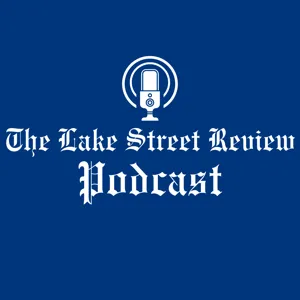Podcast Summary
National debt reaches $34 trillion, causing concern: The US national debt, currently over $34 trillion, is a cause for concern, representing an IOU the government will pay back in the future, while efforts are being made to invest in renewable energy and reduce carbon emissions.
The national debt of the United States, represented by a large digital sign in Times Square, continues to rise and currently stands at over $34 trillion. This debt is a result of the government spending more money than it takes in. The debt figure is a cause for concern for many, with some viewing it as a significant indicator of the country's financial health. The number was met with reactions of disbelief and concern from passersby, highlighting the attention-grabbing nature of the debt figure. It's important to note that this debt doesn't mean the country is out of money, but rather an IOU that the government will pay back in the future. The conversation also touched upon the efforts being made by companies like Enbridge to invest in renewable energy and reduce carbon emissions. ADP was mentioned as a company that helps businesses prepare for various workplace trends and challenges.
Debating the Wise Use of Government Debt: Critics argue US debt, now the 4th highest among advanced economies, fuels wasteful spending and interest payments surpass defense spending. Most gov't spending is for consumption, not investments.
The US debt has reached historically high levels due to increased spending during crises like COVID-19 and tax cuts, making it the fourth highest among advanced economies. Critics argue this debt encourages wasteful spending, with interest payments surpassing national defense spending for the first time this year. While some argue that debt can be used for productive investments, like buying a house or investing in infrastructure, the majority of government spending goes towards consumption, with less than 20% allocated to investments. This debt burden can be manageable during economic growth, but it becomes a concern during economic downturns when borrowing and spending can be beneficial. Overall, the debate revolves around whether the debt was taken on wisely and if the government's spending priorities are sustainable.
Considering the long-term consequences of borrowing: Borrowing can help during crises, but excessive borrowing without spending reductions can lead to negative effects. Fairness of passing debt to future generations is debated, but investing in future benefits is generally seen as acceptable.
While borrowing money can help in certain economic situations, such as during a crisis like the COVID-19 pandemic, it's important to consider the long-term consequences. Borrowing excessively without corresponding reductions in spending can lead to inflation and other negative effects. Additionally, the fairness of passing on a large national debt to future generations is a valid concern. Some argue it's similar to parents spending beyond their means and passing the bill to their children. However, spending on investments that benefit future generations, like fighting climate change or growing the economy, could be seen as fair. Ultimately, it's crucial to ensure that borrowing is used wisely and for the greater good.
The US fiscal position and potential risks: Experts warn of political dysfunction and its impact on US debt rating and investor confidence, while advocating for addressing taxes and government spending in a productive manner and investing in public projects.
The unique fiscal position of the United States, as the issuer of the world's reserve currency, provides a level of protection against a fiscal crisis. However, both experts, Maya and Martha, express concern over the potential increase in political dysfunction and risk, which could negatively impact the US debt rating and investor confidence. They agree on the importance of addressing taxes and government spending in a productive and non-toxic manner. Despite their differences, they both advocate for investing in public projects and maintaining a stable economic environment. However, they also acknowledge the potential danger of a nuclear apocalypse, which serves as a reminder of much larger and more pressing global concerns.
Customized support for small businesses: State Farm acknowledges the unique needs of small businesses and offers customized solutions to help them navigate through various challenges, including inflation, natural disasters, and menu planning.
Understanding the unique needs of small businesses is crucial for providing effective support. Darion's episode of The Indicator highlights the importance of adaptability in addressing the concerns of various business owners. From mental health professionals to sign owners, each business faces distinct challenges. State Farm, as a trusted insurance provider, acknowledges these differences and offers customized solutions to help small business owners navigate through uncertain times. Whether it's inflation, natural disasters, or menu planning, State Farm is committed to being a good neighbor and providing the necessary support.





